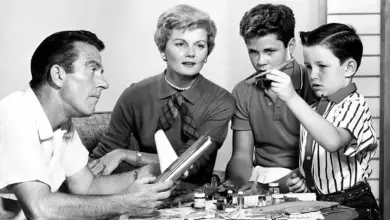‘Leave it to Beaver’: Jerry Mathers Explained How the Show ‘Never Quit’ in Decades Since Debut
“Leave it to Beaver” may have been off the air for nearly fifty years, but it remains an iconic American staple in pop culture. Even though the show’s star, Jerry Mathers, is now 72-years-old, longtime-fans still recognize him for his prolific role as Beaver.
Today, 63 years later, the show remains relevant with older generations and younger ones. However, this was not a mistake. Even before shooting, the show had a goal of garnering audiences of all ages. As a result, the show proved to be successful as well as timeless.
During an interview with Closer Weekly, Mathers opened up about the show’s secret to success.
“It just never quit,” Mathers said in the exclusive chat. “Had it been something that kind of laid down and jumped back up, it might have been surprising, but it’s always been just very popular. I’ve always done a lot of interviews. I get a lot of people that see me on the street and still recognize me, and it’s always for Leave It to Beaver, even though I’ve done a lot of other things. But it’s a pleasure as an actor to have something that’s so well recognized and so well received, especially for ‘all these years.”
Mathers on ‘Leave It to Beaver:’ ‘It’s Always Been Just Very Popular’
Created by Joe Connelly and Bob Mosher, “Leave it to Beaver” gave viewers an idyllic 1950s look into life with the Cleaver family. Hugh Beaumont and Barbara Billingsley played Mather’s parents, Ward and June Cleaver. Tony Dow starred as Beaver’s older brother Wally.
The show’s formula for success was simple. It was a family-friendly comedy that drew its narrative from the experiences of kids. The show’s messages highlighted family values such as morals, right and wrong, and kindness— all things that many still value today. According to Mathers, the meaningful yet straightforward plot gave viewers a much-needed break from a world full of cynicism.
“But the world was just as cynical back then if not more, he added. “Because even though it was made in ’57, we were coming out of World War II and then the Korean War. It was fairly tough times for a lot of people. It wasn’t the Depression by any means, but those were times when, if you had a job, you were very lucky; and people were happy to be in the United States. And the episodes work, I think, because all of the stories are from real life. If you watch sitcoms today, it’s a lot of what I call ‘joke shows’ where people have setup, setup, joke. And a lot of them really don’t have a lot of substance.”


